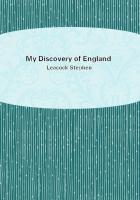The debatable question is, was the "demon," or the actual expanse of sky, first in evolution? That cannot precisely be settled, but in the analogous Chinese case of China we find heaven (Tien) and "Shang-ti, the personal ruling Deity," corresponding to the Huron "demon". Shang-ti, the personal deity, occurs most in the oldest, pre-Confucian sacred documents, and, so far, appears to be the earlier conception. The "demon" in Huron faith may also be earlier than the religious regard paid to his home, the sky. The unborrowed antiquity of a belief in a divine being, creative and sometimes moral, in North America, is thus demonstrated. So far Ihad written when I accidentally fell in with Mr. Tylor's essay on "The Limits of Savage Religion". In that essay, rather to my surprise, Mr. Tylor argues for the borrowing of "The Great Spirit,""The Great Manitou," from the Jesuits. Now, as to the phrase, "Great Spirit," the Jesuits doubtless caused its promulgation, and, where their teaching penetrated, shreds of their doctrine may have adhered to the Indian conception of that divine being. But Mr.
Tylor in his essay does not allude to the early evidence, his own, for Oki, Atahocan, Kiehtan, and Torngursak, all undeniably prior to Jesuit influence, and found where Jesuits, later, did not go. As Mr. Tylor offers no reason for disregarding evidence in 1892 which he had republished in a new edition of Primitive Culture in 1891, it is impossible to argue against him in this place. He went on, in the essay cited (1892) to contend that the Australian god of the Kamilaroi of Victoria, Baiame, is, in name and attributes, of missionary introduction. Happily this hypothesis can be refuted, as we show in the following chapter on Australian gods.
It would be easy enough to meet the hypothesis of borrowing in the case of the many African tribes who possess something approaching to a rude monotheistic conception. Among these are the Dinkas of the Upper Nile, with their neighbours, whose creed Russegger compares to that of modern Deists in Europe. The Dinka god, Dendid, is omnipotent, but so benevolent that he is not addressed in prayer, nor propitiated by sacrifice. Compare the supreme being of the Caribs, beneficent, otiose, unadored. A similar deity, veiled in the instruction of the as yet unpenetrated Mysteries, exists among the Yao of Central Africa. Of the negro race, Waitz says, "even if we do not call them monotheists, we may still think of them as standing on the boundary of monotheism despite their innumerable rude superstitions". The Tshi speaking people of the Gold Coast have their unworshipped Nyankupon, a now otiose unadored being, with a magisterial deputy, worshipped with many sacrifices. The case is almost an exact parallel to that of Ahone and Oki in America. THESE were not borrowed, and the author has argued at length against Major Ellis's theory of the borrowing from Christians of Nyankupon.
To conclude this chapter, the study of savage and barbaric religions seems to yield the following facts:--1. Low savages. No regular chiefs. Great beings, not in receipt of sacrifice, sanctioning morality. Ghosts are not worshipped, though believed in. Polytheism, departmental gods and gods of heaven, earth, sky and so forth, have not been developed or are not found.
2. Barbaric races. Aristocratic or monarchic. Ghosts are worshipped and receive sacrifice. Polytheistic gods are in renown and receive sacrifice. There is usually a supreme Maker who is, in some cases, moral, in others otiose. In only one or two known cases (as in that of the Polynesian Taaroa) is he in receipt of sacrifice.
3. Barbaric races. (Zulus, monarchic with Unkulunkulu; some Algonquins (feebly aristocratic) with Atahocan). Religion is mainly ancestor worship or vague spirit worship; ghosts are propitiated with food. There are traces of an original divine being whose name is becoming obsolescent and a matter of jest.
4. Early civilisations. Monarchic or aristocratic. (Greece, Egypt, India, Peru, Mexico.) Polytheism. One god tends to be supreme. Religiously regarded, gods are moral; in myth are the reverse. Gods are in receipt of sacrifice. Heavenly society is modelled on that of men, monarchic or aristocratic. Philosophic thought tends towards belief in one pure god, who may be named Zeus, in Greece.
5. The religion of Israel. Probably a revival and purification of the old conception of a moral, beneficent creator, whose creed had been involved in sacrifice and anthropomorphic myth.
In all the stages thus roughly sketched, myths of the lowest sort prevail, except in the records of the last stage, where the documents have been edited by earnest monotheists.
If this theory be approximately correct, man's earliest religious ideas may very well have consisted, in a sense, of dependence on a supreme moral being who, when attempts were made by savages to describe the modus of his working, became involved in the fancies of mythology. How this belief in such a being arose we have no evidence to prove. We make no hint at a sensus numinis, or direct revelation.















